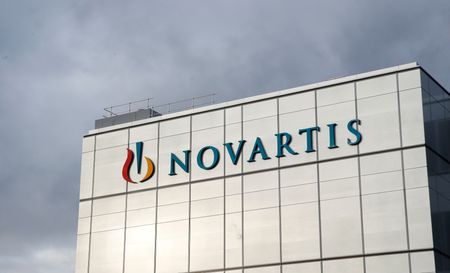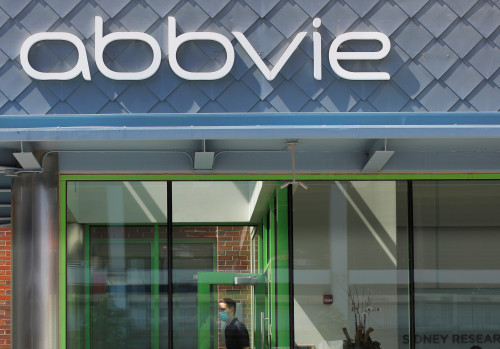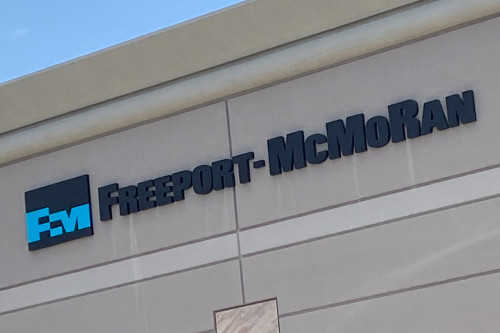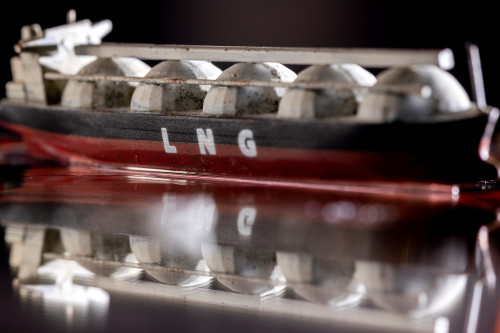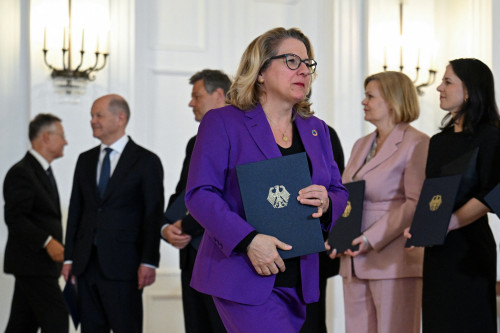By Ludwig Burger
FRANKFURT (Reuters) -Novartis on Tuesday raised its full-year earnings forecast for the second time on strong drug sales and mapped out the planned separation and stock market debut of its generic medicines division Sandoz for early October.
The Swiss drugmaker said in a statement it expected group core operating income to grow by a “low double-digit” percentage in 2023, up from high single-digit growth previously projected.
Novartis shareholders will vote on the proposed Sandoz spin-off and complete separation at an extraordinary general meeting on Sept. 15.
A listing of shares in Switzerland and of depositary receipts in the United States was scheduled for early the following month, said Chief Financial Officer Harry Kirsch.
For Novartis CEO Vas Narasimhan, who previously led a push to slash jobs and to focus on fewer therapeutic areas and geographic markets, the spin-off means greater reliance on innovation at the core business.
Having come under investor pressure to deliver more development milestones, he scored a major win this year when breast cancer drug Kisqali was shown to help a wider patient group in a study.
The company’s improved guidance 2023, the second time this year, offered some reassurance to Fabian Wenner, wealth management analyst at Swiss bank Julius Baer, but there is still more to do to improve the drug development pipeline, he said.
“After the spin-off there won’t be the other division any more to rely on. The pharma division will then have to deliver,” he told Reuters.
Second-quarter group sales rose 7% to $13.6 billion, above an analyst consensus of $13.2 billion, Refinitiv Eikon data showed, while adjusted operating profit increased 9% to $4.67 billion, surpassing a consensus of about $4.3 billion.
Gains were driven by better-than-expected sales of heart failure drug Entresto, up 37% in local currencies at $1.52 billion. Novartis is in a legal battle with generic drugmakers seeking to launch cheaper copies ahead of an anticipated end to Entresto’s patent protection in 2025.
Kesimpta, a new once-a-month injection against multiple sclerosis, also beat expectations with quarterly revenues more than doubling to $489 million.
Sales of newly launched Pluvicto, a radiotherapy against prostate cancer, came in at $240 million after a manufacturing facility upgrade in New Jersey helped to overcome production shortages.
Julius Baer’s Wenner said Pluvicto’s potential was a particular highlight, alongside that of Kisqali.
The shares jumped 3.4% to 87.77 Swiss francs, their highest in more than a week, with analysts at brokerages JP Morgan and Stifel pointing to a strong set of results.
Sandoz, which analysts have said accounts for slightly over 10% of the group’s value, would have a “low-to-mid single-digit” billion dollar amount in net financial debt, consistent with a “BBB” investment grade credit rating, Kirsch added.
Sandoz, which accounted for about 10% of group core operating profit of $16.7 billion last year, was put under a strategic review by Novartis CEO Vas Narasimhan in 2021 following mounting pricing pressures in the U.S. off-patent drug sector.
As a standalone group, it will be banking on growth in the lucrative segment of biosimilars, cheaper versions of off-patent biotech injection drugs that are made from modified living cells, competing with Fresenius, unlisted Boehringer Ingelheim, Organon Teva and Amgen.
Swiss pharma major Novartis is also initiating a previously flagged share buyback programme worth up to $15 billion to be completed by year-end 2025, following the completion its previous share buyback in June 2023.
(Reporting by Ludwig Burger, Editing by Rachel More and Sharon Singleton)

